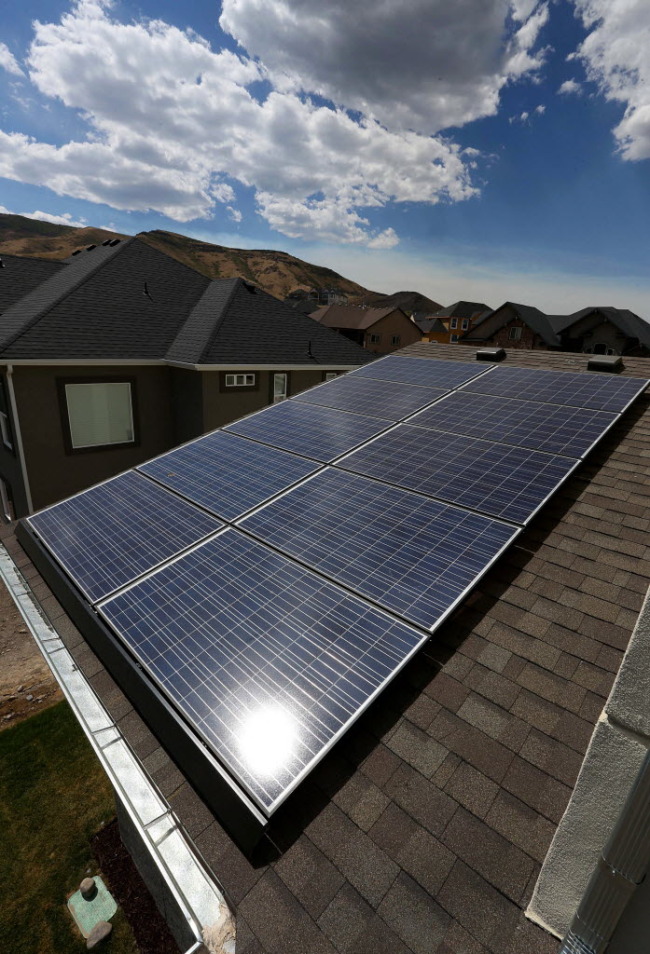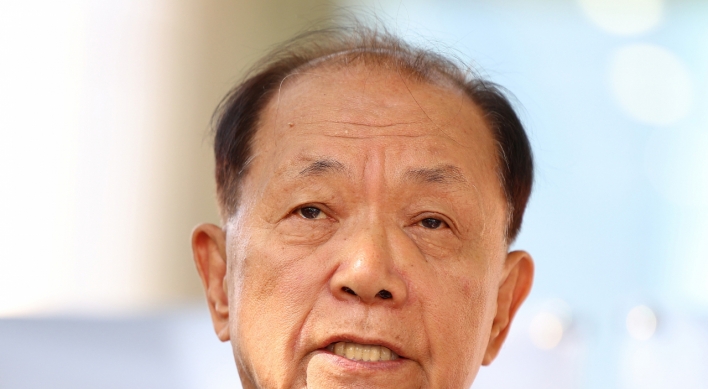Solar panels for rent
Outlook positive for the burgeoning business but market expected to grow at slow pace
By Seo Jee-yeonPublished : March 13, 2014 - 20:39
Korean homeowners concerned about their rising monthly electricity costs may soon have a solution as the solar panel rental business for residential homes is expected to make its debut in April.
Private energy companies and the state-run Korea Energy Management Corp. are currently in talks over profit sources, but the timeline seems to have been set.
According to industry sources, solar rental operators will generate profit not only from fixed monthly rental fees, but also from government subsidies. “Once the scope of government subsidies is fixed by the end of this month, the company expects to launch a full-fledged marketing campaign to promote the solar-panel leasing business,” Kim Bong-ga, a team manager of S-Energy Investment Bank, told The Korea Herald.
SEIB is an affiliate of S-Energy, which is currently the biggest manufacturer of photovoltaic modules in Korea. SEIB spearheaded the introduction of the country’s solar panel rental business.
Private energy companies and the state-run Korea Energy Management Corp. are currently in talks over profit sources, but the timeline seems to have been set.
According to industry sources, solar rental operators will generate profit not only from fixed monthly rental fees, but also from government subsidies. “Once the scope of government subsidies is fixed by the end of this month, the company expects to launch a full-fledged marketing campaign to promote the solar-panel leasing business,” Kim Bong-ga, a team manager of S-Energy Investment Bank, told The Korea Herald.
SEIB is an affiliate of S-Energy, which is currently the biggest manufacturer of photovoltaic modules in Korea. SEIB spearheaded the introduction of the country’s solar panel rental business.

Just like any other rental business
“Solar panel leasing will be run like any other rental business,” Kim explained. “The company installs solar panels on the rooftop, and maintenance is offered for free for up to 12 years as long as the homeowners pay a flat monthly rate of 65,000 won ($61),” Kim said.
This means there are no installment or maintenance costs involved.
According to Kim, a home consuming more than 400 kilowatt-hours, or KWh, can save on electricity costs when using the firm’s eco-energy rental service.
The company targets mostly larger homes ― not apartments ― burdened with monthly electricity bills of over 100,000 won.
“The time is right to start such a business as the rising utility bills are making homeowners think about how to save energy costs,” Kim added. “Homes using more than 500 KWh can cut their utility costs by up to 30 to 40 percent with solar power supplements.”
The government’s policy efforts to promote solar-powered homes are also expected to give the industry a push.
The Energy Ministry has developed a profitable business model for solar-panel rental companies as part of a national initiative for boosting demand for solar power. Renewable energy accounted for less than 2 percent of Korea’s total power generation in 2012, showing that there is still a lack of both demand and awareness.
However, it still will not be easy for solar homes to catch on, industry watchers say, as the country is dominated by apartment complexes at which installing panels would be an entirely different issue.
Currently, 30,000 solar-powered homes exist in Korea.
By Seo Jee-yeon (jyseo@heraldcorp.com)






![[KH Explains] No more 'Michael' at Kakao Games](http://res.heraldm.com/phpwas/restmb_idxmake.php?idx=644&simg=/content/image/2024/04/28/20240428050183_0.jpg&u=20240428180321)











![[Herald Interview] Mistakes turn into blessings in street performance, director says](http://res.heraldm.com/phpwas/restmb_idxmake.php?idx=652&simg=/content/image/2024/04/28/20240428050150_0.jpg&u=20240428174656)
